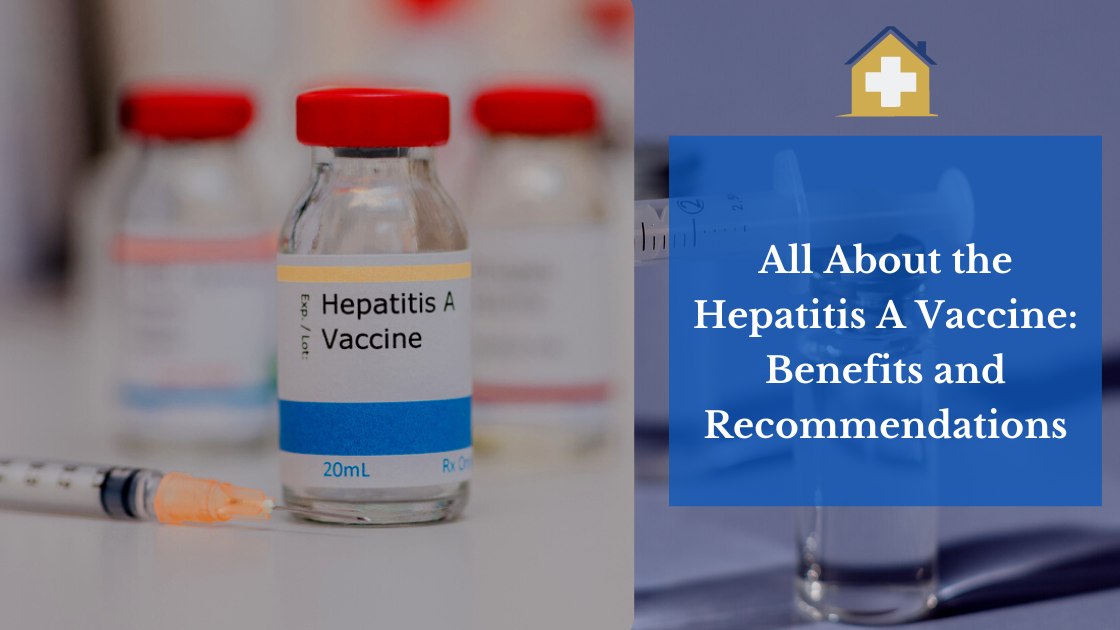Hepatitis A is a contagious viral infection primarily affecting the liver. It is caused by the hepatitis A virus (HAV) and is transmitted through contaminated food, water, or close contact with an infected person. Hepatitis A virus can lead to severe liver inflammation, jaundice, abdominal pain, and various flu-like symptoms, including fever, fatigue, and nausea.
Although rare, hepatitis A can cause liver failure and even death. It is also highly contagious. One of the most effective ways to prevent the spread of hepatitis A is through vaccination. This blog will explain what hepatitis A is and the importance of the hep A vaccine.
Who Should Get the Hepatitis A Vaccine?
USCIS requires proof of Hepatitis A vaccination for all applicants aged 1 to 18 years. The vaccine is given as a series of two injections six months apart. For applicants that fall within this age group but have not yet started the series, the first injection is all that is needed to satisfy USCIS, but applicants should still plan to complete the series by eventually obtaining the second injection.
The Centers for Disease Control and Prevention (CDC) and other health organizations recommend hepatitis A vaccination for several groups of individuals. The specific suggestions may vary slightly depending on the country and region, so it's important to consult local health authorities for the most effective guidelines.
Here is an overview of the age groups and populations that are at most risk for hepatitis A:
- Children: The CDC recommends routine Hepatitis A vaccination for all children in the United States at age 1 (12-23 months) and doses for older children and adolescents who were not vaccinated earlier. It is also recommended for infants age 6-11 months when traveling outside the U.S.
- Adults: All adults in risk groups and everyone who wants to avoid hep A infection. People traveling to countries or regions where hepatitis A is common should receive the hep A vaccine before their trip.
- Men Who Have Sex with Men: Due to higher rates of hepatitis A transmission in this population, the CDC recommends a hepatitis A vaccine for them.
- Regular Drug Users: Individuals who use injection or non-injection drugs are at higher risk of hepatitis A infection.
- People with Chronic Liver Disease: Those with chronic liver disease, including hepatitis B or C, cirrhosis, or other liver conditions, should be vaccinated against hep A to prevent further liver damage.
- Individuals with Hemophilia: People with blood disorders, such as hemophilia, are at increased risk of hepatitis A complications and should receive the vaccine.
- Post-Exposure Prophylaxis: The CDC recommends the hepatitis A vaccine for people in close contact with individuals diagnosed with hepatitis A to protect them against contamination.
The WHO recommends hepatitis A vaccination for everyone in countries or areas with intermediate to high endemicity or where outbreaks have previously occurred.
Also read: Hepatitis B Vaccine Is Now Required for All Applicants from Birth Through 59 Years Old
Why Is the Hepatitis A Vaccine Important?
Vaccination against hepatitis A is of vital importance for several reasons.
- Firstly, it effectively protects against the virus, preventing individuals from contracting the disease and experiencing its potentially debilitating effects. Hepatitis A Vaccine stimulates the immune system to produce antibodies specifically targeting the hepatitis A virus, enhancing the body's ability to fight off the infection.
- Furthermore, the hepatitis A vaccine plays a critical role in preventing the spread of the virus within communities. By ensuring high vaccination coverage, the risk of outbreaks and epidemics can be significantly reduced. This is particularly important in places such as childcare centers, schools, and healthcare facilities, where close person-to-person contact can facilitate the transmission of the virus.
- Additionally, the hepatitis A vaccine is recommended for individuals at higher risk of contracting or spreading the virus. This includes travelers to regions with high hepatitis A prevalence, men who have sex with men, individuals with chronic liver diseases, illicit drug users, and people working in the food handling industries. Hepatitis A vaccination not only safeguards these individuals but also contributes to overall public health by curbing the transmission of the virus.
Contracting hepatitis A can have various consequences, including serious illness and the potential need for hospitalization.
Some potential consequences associated with hepatitis A are:
- Debilitating Symptoms: Severe signs of hepatitis A include fatigue, abdominal pain, nausea, loss of appetite, and jaundice which can affect an individual's daily life.
- Acute Liver Failure: Rarely, hepatitis A can progress to fulminant hepatitis, characterized by acute liver failure. Acute liver failure requires urgent medical attention and may necessitate liver transplantation, or it can result in death.
- Hospitalization: In serious cases, individuals with hep A may require hospitalization to monitor the progression of the disease, manage symptoms, and provide supportive care.
How to Get Vaccinated?
Individuals must consult their healthcare provider to determine their vaccination needs based on age, risk factors, travel history, and overall health.
It is crucial to note that guidelines and recommendations may vary slightly depending on the country and specific circumstances. Consulting with healthcare professionals, public health authorities, or civil surgeons is essential to receive the most advanced and personalized advice regarding hepatitis A vaccination.
Also read: Vaccination Requirements for the Immigration Medical Exam
Prevent Hepatitis A with Expert Advice from Steven Wittenberg Gordon
The hepatitis A vaccine is a crucial preventive measure against this contagious liver infection. By understanding the nature of the hepatitis A virus and recognizing the importance of vaccination, individuals can take proactive steps to safeguard their health and help prevent the spread of this disease.
For personalized consultation and need for immigration medical exams, contact Steven Wittenberg Gordon, MD, a United States Civil Surgeon who has performed thousands of immigration medical exams and related services for over the past twenty years.


